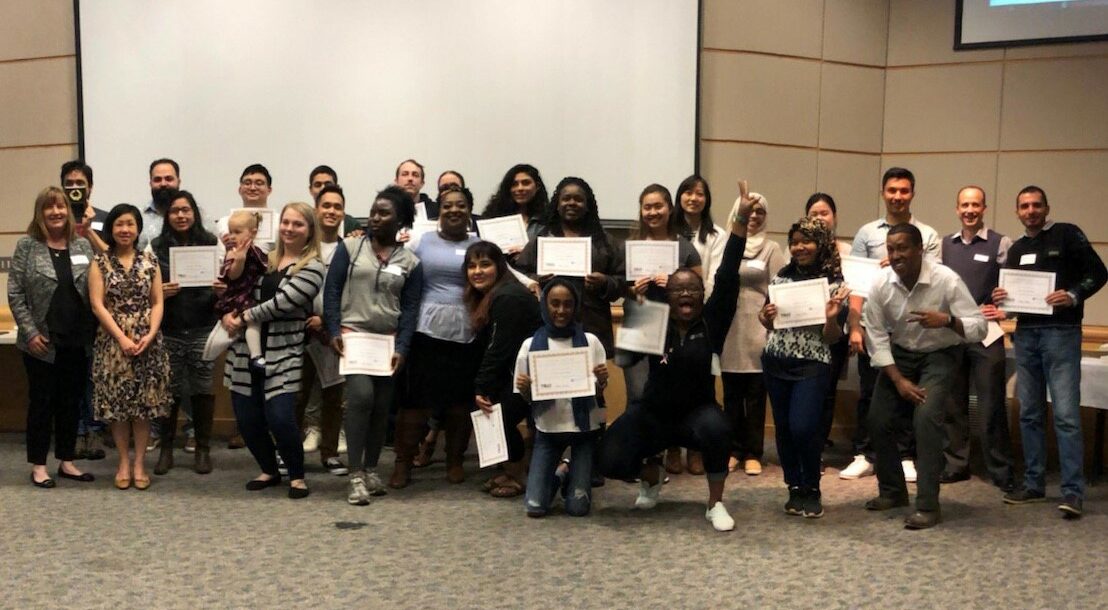When You’re the First in Your Family to Go to College
Nov 12, 2020Students share their inspirational stories for National First-Generation College Student Day Growing up in San Diego, Quiniece Hubbard didn’t find a lot of encouragement to attend college. Her parents weren’t college graduates, so she didn’t have family to turn to for help. A college degree just didn’t seem attainable. Quiniece Hubbard Last spring Hubbard earned…

Students share their inspirational stories for National First-Generation College Student Day
Growing up in San Diego, Quiniece Hubbard didn’t find a lot of encouragement to attend college. Her parents weren’t college graduates, so she didn’t have family to turn to for help. A college degree just didn’t seem attainable.

Last spring Hubbard earned her associate degree in molecular biosciences from Bellevue College (BC) and is currently pursuing her bachelor’s degree, with the goal to become a naturopathic doctor and licensed midwife. What changed? She found the inspiration to reach higher, and support services at BC to help her.
“I felt a strong calling from God that this was my path, to be a doctor,” said Hubbard. “At the time I was a little nervous. I hadn’t been to school for 17 years. But I thought about how many Black women die in childbirth and the high infant mortality rate because they don’t have the same access to healthcare. I want to change that.”
First-generation college students face barriers that can often seem overwhelming. Open access colleges like BC are an attractive alternative to larger universities, with more resources to support nontraditional students, smaller class sizes, and instructors who are dedicated solely to teaching, not research or publishing. This Fall Quarter, 38% of enrolled students at BC identify as first-generation students.
For Hubbard, the TRIO program at BC has made a big difference in her success. TRIO supports college students who are low income, first-generation (those whose parents do not have a four-year college degree) or students with disabilities. The program offers academic advising, tutoring, financial aid advice, college mentoring, study skills development, and tutoring.
“Students without family guidance or academic preparedness can be at a disadvantage when they enter college,” said Barbara Brodsky, Director of TRIO Student Support Services at BC. “They might have never filled out a financial aid form before, or understand how to format a research paper. TRIO helps orient them to college life, and offers support to make sure they’re successful in their studies, and beyond.”
For first-generation student Lee Janzen, not only were they not prepared for college, but they’d never even been inside a classroom before, or had a teacher.

“I was raised in a fundamentalist family, and was home-schooled,” said Janzen. “Education wasn’t really valued, and I was discouraged from studying math and science. But I was always interested in computers. I just didn’t have the opportunity.”
After leaving home, Janzen became intrigued with machine learning, and how biases could impact it.Now Janzen is studying computer science at BC with the goal of getting their bachelor’s degree to pursue a career in artificial intelligence.
Janzen also found the services at TRIO to be extremely helpful. “There’s so much information outside the classroom that you’re just expected to know. For me, I was like, ‘What’s registration’? ‘How do you take a test?’ I’d never done those things before. TRIO helped me figure it out.”
Both Hubbard and Janzen have some advice for other first-generation college students.
“Get involved. Get to know the people around you, find all the resources that are available,” said Hubbard. “Don’t let your circumstances or where you came from define who you are. It’s not as intimidating as it looks, and going to college is going to help you meet your goals.”
“Find TRIO,” said Janzen. “Take advantage of things like Math Labs, talk to your instructor and let them know if you’re having trouble. They understand where you’re coming from, and they can help you understand the material. Finding your people is essential to your success.”
On Nov. 9, Bellevue College celebrated National First-Generation College Student Day through a virtual event where BC faculty and staff hosted a panel and showed a montage of first generation BC student stories.
About TRIO: The U.S. Department of Education recently awarded Bellevue College a federal TRIO Student Support Services (SSS) grant of $1,473,625 to help more students succeed in and graduate from college. Bellevue College has offered the Student Support Service program since 2001, helping 1471 students graduate from college.
[ssba-buttons]